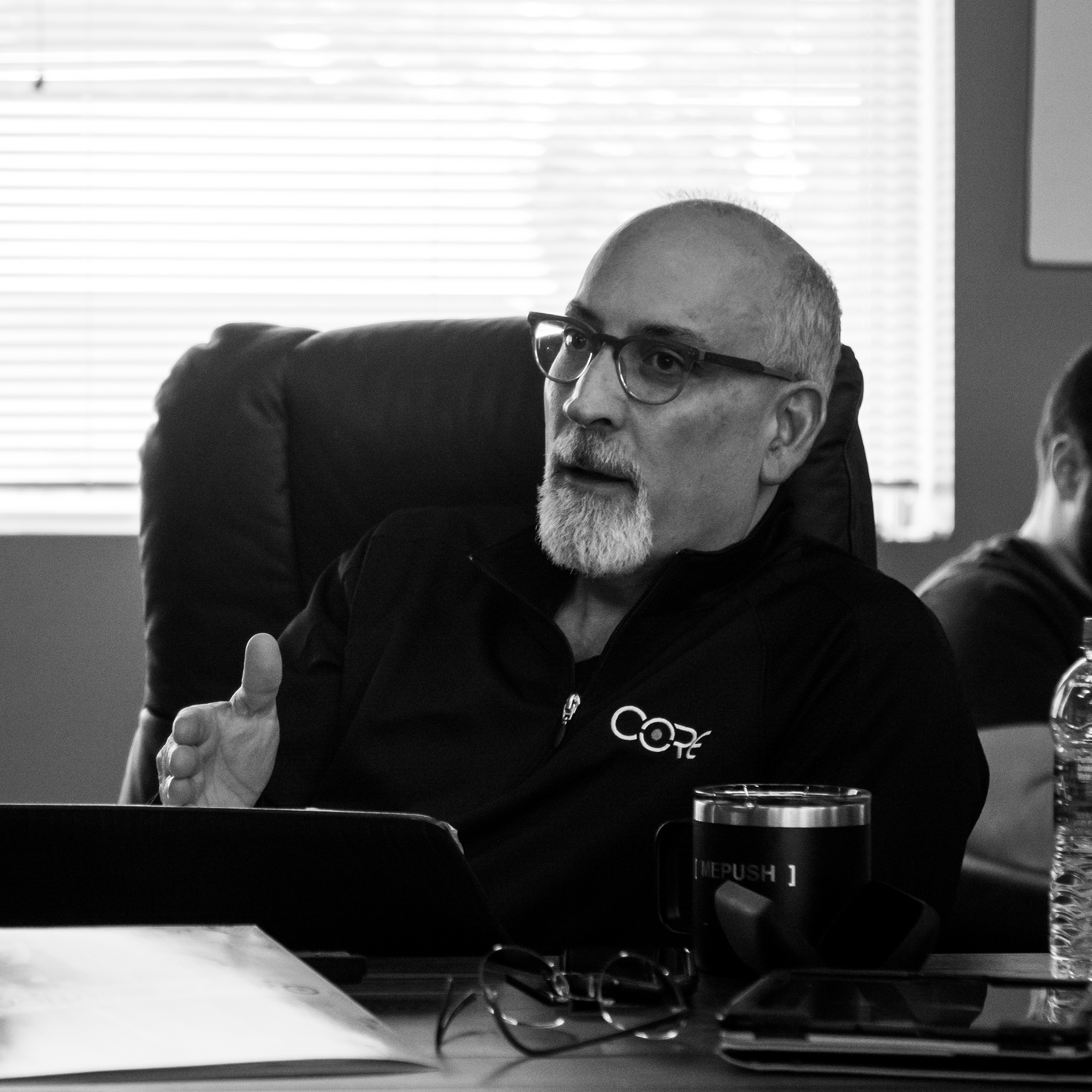ISO 9001 Consulting
for Manufacturers in Austin, TX

Local Consulting for the Austin, Texas Market
ISO 9001 Quality Management System. 100% Success Rate.
Implementation with Core. 4 Steps. 4 Months. Done.
ISO 9001 Certification Austin, Texas
In the heart of Texas, Austin shines as a city celebrated for its vibrant business ecosystem, boundless innovation, and entrepreneurial spirit. Renowned for its thriving tech scene, flourishing startups, and dynamic creative industries, Austin stands as a testament to ingenuity and excellence. Within this vibrant landscape, one trend gaining significant momentum is the adoption of ISO 9001 certification—a hallmark of quality and commitment to operational excellence.
ISO 9001 certification, an internationally recognized standard for quality management systems (QMS), offers a robust framework for organizations to ensure consistent delivery of products and services that meet customer expectations and regulatory requirements. While its benefits resonate across industries worldwide, the adoption of ISO 9001 holds particular relevance in Austin, where a culture of innovation and high performance demands adherence to the highest standards of quality and reliability.
Get a Free Quote
Manufacturing in Austin, Texas: From Roots to Innovation
Austin, Texas, known for its vibrant music scene and status as the “Live Music Capital of the World,” is also a city with a rich and evolving history in manufacturing. From humble beginnings tied to agriculture and textiles to its current role as a hub for high-tech manufacturing, Austin’s industrial journey mirrors the city’s transformation into a global innovation powerhouse.
The Early Years: Agriculture and Local Industry
In the 19th century, Austin’s manufacturing industry began modestly, serving the needs of its agricultural surroundings. The fertile lands of Central Texas supported cotton farming, and Austin’s early manufacturing efforts focused on processing agricultural products. Cotton gins and small textile mills were among the first industrial establishments in the area.
The completion of the Houston and Texas Central Railway in the 1870s provided a crucial boost to local manufacturing, enabling Austin to transport goods more efficiently and connect with larger markets.
The Mid-20th Century: Diversification and Growth
The Great Depression and World War II brought about significant shifts in Austin’s manufacturing landscape. While the city’s economy was still relatively small, the war years introduced new manufacturing opportunities, particularly in defense-related industries. Factories in and around Austin contributed to the production of military equipment and supplies.
The post-war years saw continued diversification. By the 1950s and 1960s, Austin began to attract more light manufacturing industries, including food processing and consumer goods. However, the city was still searching for its industrial identity compared to other Texas cities like Dallas or Houston.
The Tech Revolution: Semiconductor Manufacturing
The 1970s marked a transformative era for Austin, as the city began to emerge as a hub for technology-driven manufacturing. The establishment of institutions like the University of Texas at Austin played a significant role in fostering innovation and attracting skilled talent to the region.
In 1983, Austin landed one of its most defining industrial players: Sematech, a consortium of semiconductor manufacturers that aimed to revitalize the U.S. semiconductor industry. The arrival of Sematech not only boosted Austin’s economy but also cemented its reputation as a center for high-tech manufacturing.
Semiconductor giants like Advanced Micro Devices (AMD) and Motorola (later Freescale Semiconductor and NXP Semiconductors) followed, establishing facilities in the region. These companies helped create a robust ecosystem of suppliers and support services, setting the stage for Austin’s ascent as a tech manufacturing hub.
The Rise of High-Tech Manufacturing
The 1990s and 2000s saw Austin’s manufacturing sector grow in tandem with its burgeoning tech scene. Companies like Dell Technologies, founded in nearby Round Rock, fueled the demand for manufacturing infrastructure and skilled labor in the region. Austin’s manufacturing industry began producing everything from semiconductors to computer hardware and advanced electronics.
This period also saw the rise of clean energy and biotech manufacturing in Austin, with companies investing in solar panel production, medical devices, and other cutting-edge technologies.
Unlock New Opportunities
As businesses in Austin strive for excellence in a competitive and dynamic market environment, ISO 9001 certification emerges as a powerful tool for driving quality, innovation, and growth. By embracing the principles of ISO 9001 and committing to continuous improvement, organizations in Austin can unlock new opportunities, enhance customer satisfaction, and elevate their standing in the global marketplace.
What is the ISO 9001 Certification Process?
In a nutshell, the certification process involves an independent third-party certification body that conducts an audit of the company’s quality management system to ensure that it meets the requirements of the standard. The audit includes a review of the company’s processes, documentation, and procedures to ensure that they are aligned with the standard. Once the audit is completed, the certification body issues the ISO 9001 certification.
The Benefits of ISO 9001 Certification
ISO 9001 certification is not only beneficial for large organizations but also for small and medium-sized enterprises. In Washington DC, many businesses of all sizes have pursued ISO 9001 certification to improve their competitiveness, enhance their customer satisfaction, and expand their business opportunities.
What is the Cost of ISO 9001 Certification?
The cost of ISO 9001 certification with Core Business Solutions, Inc. varies depending on the size and complexity of the organization. However, we offer a transparent pricing structure that is based on the number of employees in the organization. It costs between $5,700 and $15,000 to prepare and between $3,000 and $5,000 to certify, depending on the company size and how much prep time you choose to take.
Additional Cost of ISO 9001 Certification
In addition to the cost of certification, there are other costs associated with achieving ISO 9001 certification. These may include the cost of training employees in the requirements of the standard and the cost of conducting internal audits to ensure compliance with the standard. However, the benefits of ISO 9001 certification often outweigh the costs. ISO 9001 certification can help organizations improve their operations, reduce costs, increase customer satisfaction, and enhance their reputation.
Consulting Programs Annually
Years Helping Customers
+8,000 Customers Trust Core
Core Business Solutions Consulting in Austin, Texas
Core Business Solutions is a leading provider of ISO 9001 consulting services with local consultants in Austin. We work with companies of all sizes and industries in Austin to help them achieve ISO 9001 Certification and improve their business processes. Core Business Solutions offers a comprehensive suite of services, including gap analysis, documentation development, training, and internal auditing.
What it’s like Working with Core Business Solutions
Chris R. an executive at Semper Valens Solutions in Texas, worked closely with one of our lead consultants, Pat Gagner, to acquire the ISO 20000-1 and ISO 27001 certifications. Chris acknowledged and commended Pat’s “invaluable contributions.” Chris further commented about Pat’s leadership and expertise saying that “Pat demonstrated an exceptional ability to break down complex ISO requirements into manageable and actionable steps, which was crucial for our understanding and implementation.”
Achieving ISO 20000-1 and ISO 27001 certifications can be a difficult task. Still, with the help of a knowledgeable and experienced consultant like Pat and the resources provided by Core Business Solutions, the process can be much easier. ISO Certification not only demonstrates a commitment to quality and customer satisfaction, but it can also improve business processes and increase efficiency, leading to greater success and profitability.
“Working with Bruce made gaining our ISO Certification very seamless. His knowledge and professionalism were greatly appreciated. I look forward to working with Bruce as we move into the next phase of our ISO journey.” Charles W, Strac Industries

“The powerful team at Core Business Solutions has created a product that will exceed all expectations. Their model, culture, and broad experience will benefit any organization, but will also give you a glimpse into what growth is available.” Bret S., Technical Chemical Company

So, How do You get ISO 9001 Certification? Here are the Steps:
Step 1: Develop a Quality Management System
The first step in getting ISO 9001 Certification is to develop a Quality Management System that meets the requirements of the standard. This involves identifying the processes and procedures that are necessary to manage your organization’s operations and improve quality control. You’ll need to document these processes and procedures and ensure that they’re tailored to your organization’s specific needs.
Step 2: Implement the Quality Management System
Once you’ve developed your QMS, it’s time to implement it throughout your organization. This involves training employees in the new processes and procedures and making sure everyone understands their role in the QMS. You’ll also need to integrate the QMS into your overall business processes to ensure that it’s functioning effectively.
Step 3: Conduct an Internal Audit
Before seeking certification, you’ll need to conduct an internal audit to make sure that your QMS is functioning effectively. This involves reviewing your processes and procedures to identify any areas that need improvement and making changes as necessary.
Step 4: Select a Certification Body
Once you’re confident that your QMS is functioning effectively, it’s time to select a certification body to conduct an external audit. This involves choosing an accredited certification body that will conduct a thorough review of your QMS to ensure that it meets the requirements of the ISO 9001 standard.
Modern-Day Manufacturing in Austin
Today, Austin’s manufacturing sector is a cornerstone of its dynamic economy. The city has successfully blended traditional manufacturing with advanced technology, producing goods that range from semiconductors and electronics to renewable energy components and medical devices.
Tesla’s Gigafactory Texas, established in 2021, is a prime example of Austin’s modern manufacturing prowess. The massive facility produces Tesla’s electric vehicles, including the Model Y and Cybertruck, and underscores Austin’s role in the global push for sustainable manufacturing.
Thriving Innovation Ecosystem
Austin’s manufacturing industry is supported by its thriving innovation ecosystem, which includes research institutions, startups, and multinational corporations. The city’s central location, highly educated workforce, and business-friendly environment continue to attract new investments in advanced manufacturing.
The Impact of ISO 9001 Certification on Quality Management Systems
Quality management systems (QMS) are essential for organizations prioritizing customer satisfaction, efficiency, and continuous improvement. ISO 9001 certification is a globally recognized standard that outlines the requirements for QMS implementation, maintenance, and improvement.
Implementing a QMS based on ISO 9001 promotes communication and collaboration between departments and individuals within the organization. Communication and collaboration lead to better decision-making, increased efficiency, and a more cohesive organization. By having a well-defined QMS, organizations can ensure that all stakeholders are on the same page and that everyone is working towards the same goals.
ISO 9001 Certification Austin Texas
A Legacy of Adaptation and Innovation
Austin’s journey in manufacturing reflects its broader transformation as a city of opportunity and innovation. From its agricultural roots to its current status as a hub for high-tech and sustainable manufacturing, Austin has consistently adapted to changing economic landscapes.
As Austin continues to grow, its manufacturing sector remains a vital part of its identity. With advancements in robotics, artificial intelligence, and green technology, the future of manufacturing in Austin promises to be as dynamic and forward-thinking as the city itself.

